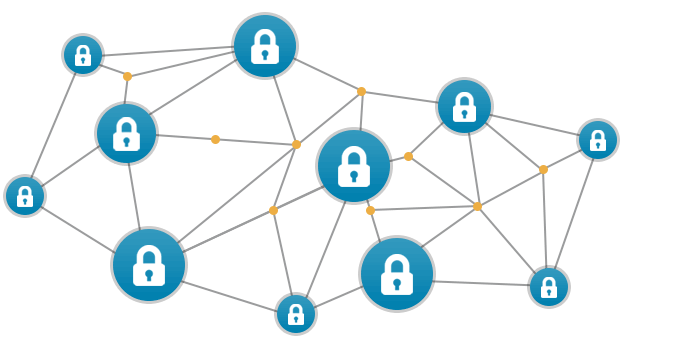Undoubtedly, blockchain has been one of the hottest technologies in the past years. It is even predicted to hold long-term power in transforming every aspect of our society, much like the Internet did before.
However, whether to implement blockchain technology in your business now is a question.
This article might help you to make a decision.
What Is Blockchain?

The initial concept of blockchain was introduced in 1991. Nonetheless, it was not until the boom of Bitcoin transactions in recent years that the technology was in the spotlight.
A blockchain – at heart, contains blocks of information that are stored and shared in decentralized control so that parties in the chain can view the updated data and create new blocks to link with previous ones.
Such a process is supposed to enhance data security and transparency with instant traceability. The technology also reduces costs thanks to its automation and efficiency to minimize errors and paperwork.
Nowadays, there are various blockchain applications such as cryptocurrency exchange, NFT marketplaces, real-time IoT operating systems, secure data sharing, etc.
How Does Blockchain Work?

Blocks combine sequential and immutable data into an ever-growing chain and distribute it among various peer-to-peer nodes accessible to allowed parties. Each block has a unique hash and limited storage capacity. Once the block uses up its storage, it closes and links to other blocks via cryptography.
No parties manage or control the whole chain, though. New transactions need to be under validation of over half of the nodes in the chain, using either Proof of Stake (PoS) or Proof of Work (PoW) consensus mechanism. After those transactions, the story records are updated and immutable.
Besides the transactions, business rules also exist as smart contracts to define the link between the blockchain and decentralized applications. These contracts run automatically upon the agreed conditioned and immediately inform parties about the outcome without delay or 3rd-party mediators.
Opportunities and Challenges for Businesses When Using Blockchain

Opportunities of using Blockchain for Business
- Fast-growing market
The blockchain landscape is promising. According to statistics, its market is expected to grow nearly 20 times, from US$ 8.3 billion this year to US$ 155 billion by the next ten years.
The bigger the market is, the more investments and advances are applied to promote blockchain development. It means you can expect the infrastructure in the industry to be more favorable to implementing blockchain technology in your business.
- Applications in different fields
Financial services account for the most prominent players in the Blockchain market, mostly due to blockchain applications in crypto exchanges and crowdfunding.
Second is the healthcare sector. Blockchain helps preserve and share data of patients through hospitals, pharmacy firms, diagnostic laboratories, etc., to detect possible misdiagnoses and provide quicker treatment.
Blockchain applications have also become more prevalent in other industries, such as Information Technology, Supply Chain, Retail, Media, Energy, Government Management, and more.
- Significant Cost Reduction
“How to reduce costs?” is one of the prioritized questions of all businesses.
A distributed and streamlined blockchain improves transparency and decreases the burdens of recording and tracking transactions. Accordingly, the validation is under peer-to-peer networks with fewer human resources or merchant processing fees.
Challenges in Blockchain Implementation
Compelling as blockchain technology is, its applications in business are limited due to several challenges.
- Huge financial implications
Building a blockchain system requires investment in development costs, decentralized application solutions, human resource costs, electricity, and storage. Be ready to pay high initial charges to implement blockchain technology in your business.
- Lack of human resources specialized in blockchain.
The need for competent blockchain workers is overgrowing. Yet, there is a severe lack of adequately educated and equipped talents to build and manage complex peer-to-peer networks.
According to IBM, the number of vacancies related to blockchain surged by over 2000% from 2017 to 2022 and will even be booming in the next few years.
- Legal issues of blockchain
Although blockchain is theoretically secure, participants in the system are still at risk since there are hardly any regulations related to transactions in the chain.
Take cyber security laws, for instance. While the technology is tamper-proof, the vast data within the blockchain are attractive targets of cybercriminals. They can use a proof-of-concept or brute force method to identify and compromise vulnerable nodes. Unfortunately, blockchain has no specific cybersecurity regulations to address such risks.
In conclusion: Whether to Implement Blockchain Technology in Your Business
Yes, it is agreed that you should implement blockchain technology in your business, but not until you have enough budget and human resources to get the job done.
In addition, consider the possible challenges – particularly those in security and legal issues- so that your business and other stakeholders are cared for!
 4 minutes read
4 minutes read
